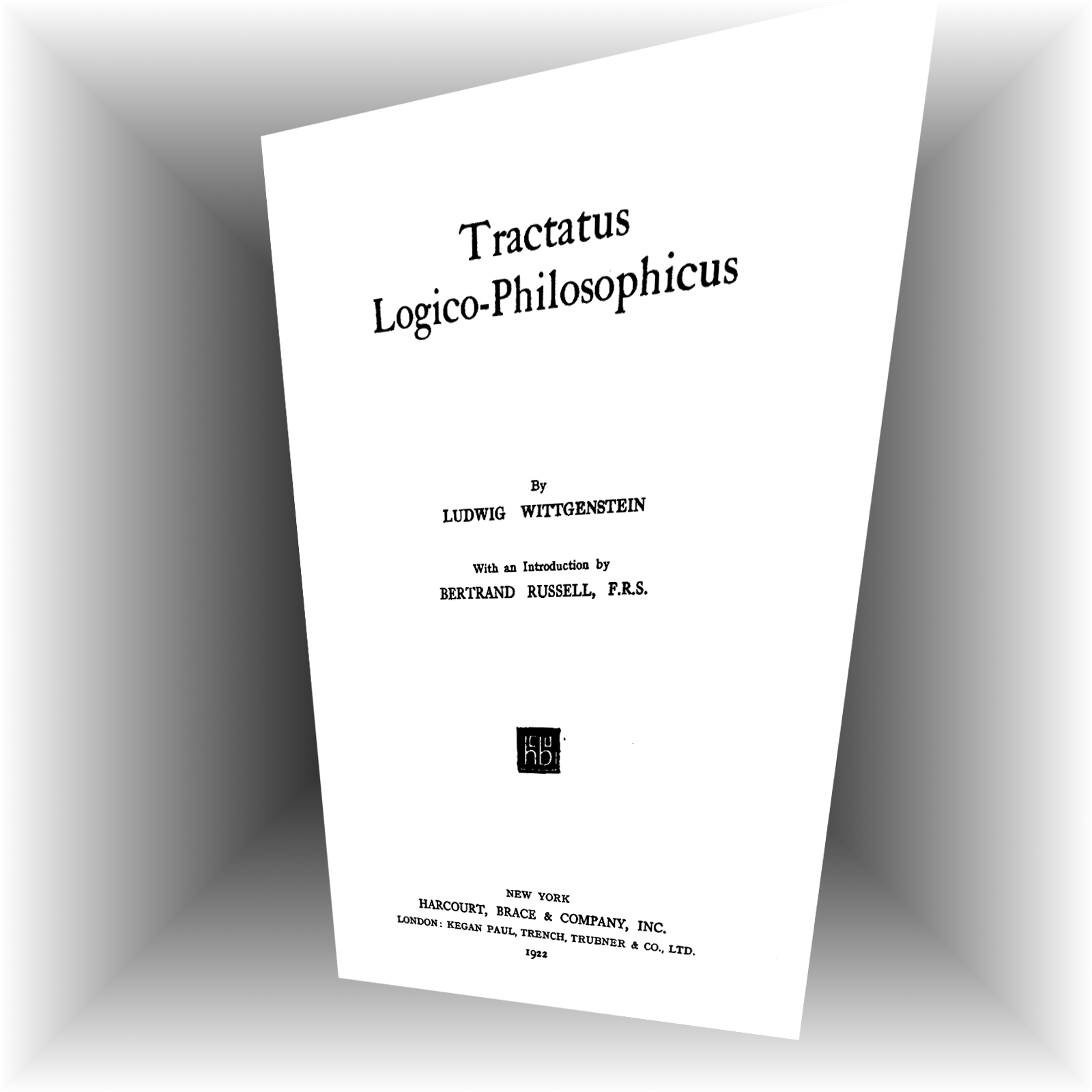The Structure of General Space (1)
Whereof we speak ... is knowledge
Once upon a time
a brave young man went forth to free the world from the problems philosophy is suffering perhaps from its earliest days. He had found out that those problems arise from misunderstanding "the logic of our language", as he wrote in the preface of a book explaining exactly that logic so "that the problems have in essentials been finally solved."
His solution was to stop using the elements of our language in a way that is robbing them of their meaning, for purposes they are unable to serve, in particular metaphysical ones.
His small (but profound) book ended with "Whereof one cannot speak, thereof one must remain silent."
The author became a very famous and highly influential philosopher - even though he did not stop diagnosing typical philosophical reasonings as a sort of illness. Later, however, after years away from academic philosophy, at least he found a warrant for philosophers of a new type (like himself): their job should be to cure us of such disease.
Therefore he developed a special method: Whenever suspicious verbal utterances are being encountered, it should be asked whether the applied words and phrases are used in an appropriate manner, in accordance with the (mostly unwritten) rules of habit.
Speaking and writing means playing a game. Its participants must rely on each other playing the same game with the same rules. Otherwise there are bound to be misunderstandings.
Single moves do not make sense unless they are embedded in the whole of the game. Nor does any single "language game" have its specific meaning unless it is intertwined with other games in a specific manner, even with non-verbal ones, and finally, unless it is embedded in the whole of social interaction.
The method developed by our author makes it often surprisingly easy to show where seemingly severe fundamental philosophical problems actually come from: Single components of our language were taken out of any habitual context. So their meaning got lost.
This meaning can now be fathomed in endless profound speculations...
As our young author had to notice regarding his own work (in the preface of the only book he ever published): "... how little has been done when these problems have been solved"!

Today
we have computers and internet. And many more means of communication. The new media. Social media. So many more media and channels and the like than ever. And their number is growing. And the time we spend using them.
So the "logic of our language" has to be upgraded. Speaking and writing is not enough. (Though even verbal communication alone is actually complex enough...)
So, is there a logic of communication? - That's what we are looking for. What we are trying to describe. To develop.
Yet, in the end even "communication" is not enough. And "logic" might be the wrong word. Cause it's occupied. It's mostly reserved for language and these things, statements, truth values.
Do computers communicate with one another? Do we communicate with our smartphone, is the electronic device our conversational partner? Is interaction communication? - Perhaps one might say so.
Perhaps we can say that things that interact exchange something, some information or so. Some data. And this exchange may then be called "communication".
Maybe we can go even further and say that every kind of interaction is in essence such a communication. In substance. Maybe there is ultimately nothing else. Nothing but communication...
But such statements do not make sense, they do not mean anything, unless the applied terms are embedded in a context giving them that sense. A kind of game. A game that is more than just a game, a game that is enbedded in our life. With practical consequences. Of real use.

For the future
we may require a new game. A game allowing us to get a grip on communication. As well as on any other kind of interactivity. A game that may be played with data.
But of course, games of this sort (similar to "language games") cannot be designed from scratch. Just by declaring some rules or so. Out of thin air. Rather, they must be based on solid fundaments consisting of existing practices. These can then be refined, abstracted, generalized. So that a system of terms or signs or whatever results. Which do not have lost their genuine meanings completely. And which are going to get new meanings through new applications.
But then, what is the meaning of the whole, of the system? What does that stand for? What is it used for? - Interactions, data, informations, meanings... maybe the best term comprehending all these (and more) is knowledge.
So we are designing a system of knowledge. That is what we are talking about. A system for everything we know, a system for everything we can talk about. For everything we can have data of. For everything we can have - in whichever form.
So then, is everything ultimately knowledge? Is knowledge everything? - Well, we can always say (and insist) that there is (must be) something else, beyond knowledge. Still, as soon as we consider it, in whichever manner, it is knowledge - in the widest sense, so to speak. In the sense being developed here.
As long as we play a game and make our moves inside its framework, as long as we live in its world, all that happens is part of that game. In order to make different experiences we have to quit the game. Play a different one.
Then we may be able to speak of things one could not speak of before. In a meaningful manner...
